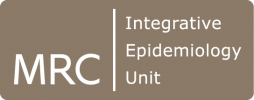© Pint of Science, 2025. All rights reserved.
Creative Reactions explores the relationships between science and art, with around 50 artists collaborating with scientists to create innovative new works. Join us as some of the artists and scientists discuss their work and collaborations.
Image credit: Bell (2019) by Emily Krainc www.emilykrainc.co.uk
Image credit: Bell (2019) by Emily Krainc www.emilykrainc.co.uk
Epidemiologist Debbie Lawlor
Professor Debbie Lawlor
(Professor of Epidemiology)
Professor Lawlor’s research aims to maximise women’s health during pregnancy, and the lifelong health of their children. Her artist has created a painting illustrating the link between pregnancy and the health of future generations.
Sculptor Michael Blow & Psychologist Emily Crowe
Sculptor Mike Blow works mainly in stone. He has produced a thought-provoking piece inspired by psychologist Emily Crowe and her work on whether short-term memory plays a role in our response to sound.
Psychiatric Epidemiologist Rebecca Pearson
Dr Rebecca Pearson
(Lecturer in Psychiatric Epidemiology)
Dr Rebecca Pearson studies one of the most fundamental, yet poorly understood, aspects of human experience: the nature of parent-child interaction. Her artist used voice recognition technology, and real-life footage, to simulate the emotional rollercoaster of interacting with a baby.
Print-maker Amy Hutchings & Charlie Hatcher
Dr Charlie Hatcher
(Bioinformatician, Genomics PLC)
Print-maker Amy Hutchins plays with bold colour, descriptive line and texture. She worked with geneticist Charlie Hatcher to explore natural selection. Amy has drawn on conversations with Children of the 90s participants to inject personal stories into her layered, printed artwork.
Geneticist Kaitlin Wade and Chloe Russell
Dr Kaitlin Wade
(Early Career Fellow, Genetics)
Chloe Russell has a background in the natural world and the fashion industry, and Dr Kaitlin Wade uses genetics to study links between diet, our gut bacteria and diseases such as colorectal cancer and type-2 diabetes.Chloe has worked with biological samples to design a visual encyclopaedia of gut bacteria that excites the eyes and feeds the brain.
Map data © OpenStreetMap contributors.

